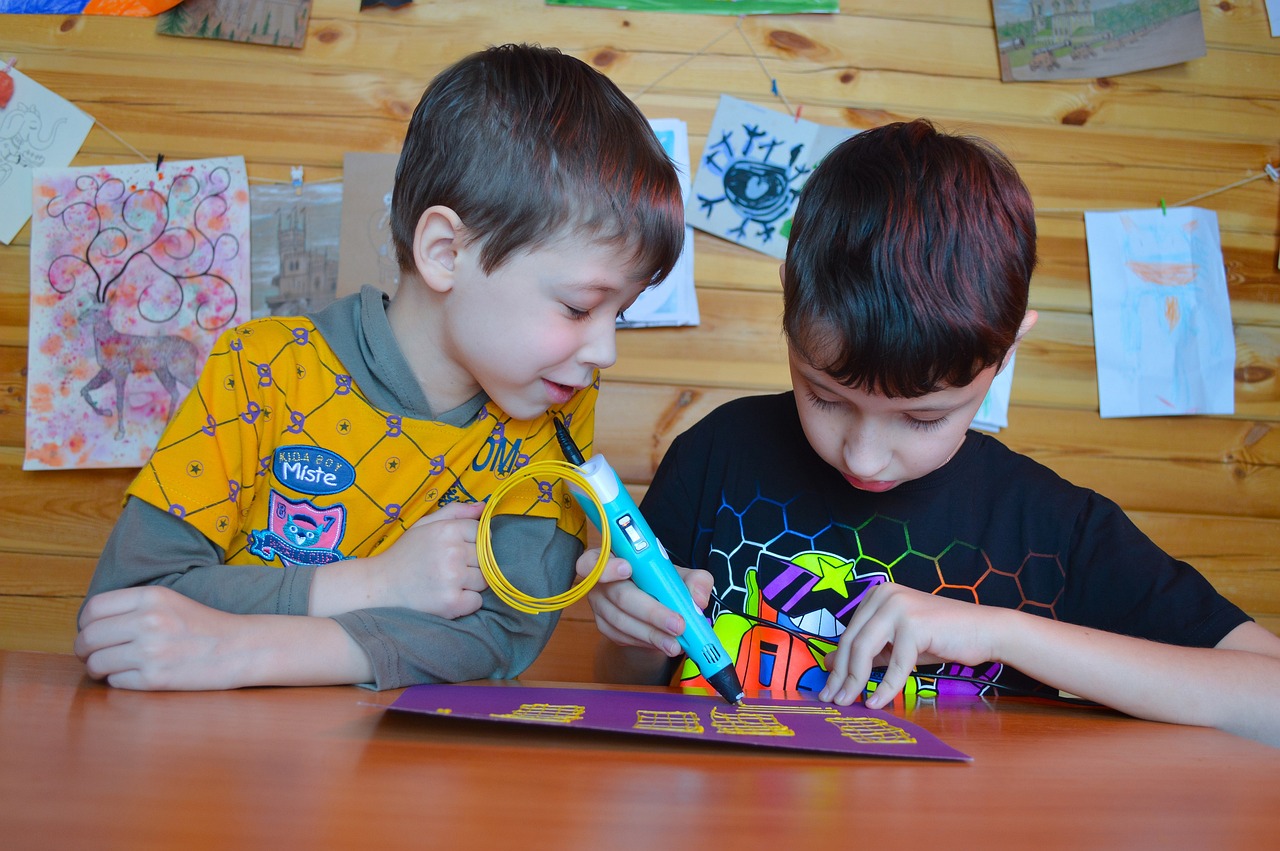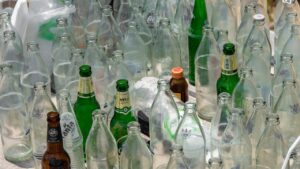Recycling for Kids: Introduction
Welcome to the exciting world of recycling for kids! In this article, we will embark on a journey to discover how recycling can empower children to become eco-warriors and make a positive impact on our planet. Recycling is not just an important environmental practice but also a fantastic opportunity to engage kids in a fun and educational way. Let’s explore why recycling is crucial for kids, delve into creative ways to introduce and teach recycling to our young ones, and discover new ideas for recycling activities.
Why is Recycling Important for Kids?
Recycling plays a vital role in preserving our environment and conserving valuable resources. By involving kids in recycling efforts, we empower them to take responsibility for their actions and instill lifelong habits that contribute to a sustainable future.
Environmental Awareness and Stewardship: Teaching kids about recycling fosters environmental awareness and a sense of stewardship. Kids learn to appreciate the natural world and understand their role in protecting it. They develop a deep connection to nature, becoming advocates for positive change.
Education and Learning Opportunities: Recycling provides a wealth of educational opportunities for kids. They learn about different materials, their life cycles, and how recycling helps conserve energy and reduce pollution. By engaging in hands-on activities, children develop critical thinking, problem-solving skills, and a curiosity for the world around them.
Responsibility and Accountability: Recycling instills a sense of responsibility and accountability in kids. When they actively participate in recycling programs, they understand that their actions can have a direct impact on the environment. This empowers them to make informed choices and encourages responsible behavior.
Resource Conservation: Kids who understand recycling grasp the concept of resource conservation from an early age. They learn that recycling reduces the need for raw materials and energy, helping to protect natural habitats and preserve biodiversity. This knowledge equips them with the tools to become responsible consumers in the future.
Community Engagement: Recycling often involves community participation. Teaching kids about recycling encourages them to engage with their communities and work together towards a common goal. This fosters a sense of belonging and teaches valuable social skills.
How to Introduce Recycling to Kids
Now that we understand the importance of teaching recycling to kids, let’s explore creative ways to introduce this concept to them:
Storytelling and Books: Use age-appropriate books and stories to explain recycling and its benefits. There are many children’s books available that make recycling fun and relatable.
Hands-On Sorting: Create a hands-on experience by letting kids sort recyclables from non-recyclables. Use clear bins to make the process visually engaging.
Field Trips: Organize field trips to recycling centers or waste management facilities. Seeing the recycling process in action can be both educational and exciting for kids.
Art and Crafts: Incorporate recycling into art and craft projects. Encourage kids to create artwork using recycled materials, turning waste into beautiful creations.
Games and Puzzles: Develop games and puzzles that teach recycling concepts, making learning enjoyable.
Role Modeling: Lead by example. When kids see adults recycling, they are more likely to follow suit. Explain your actions and the reasons behind them.
Composting: Teach kids about composting, another eco-friendly practice that complements recycling. They can learn how organic waste can be turned into nutrient-rich soil.
Additional Recycling Activities for Kids
Here are more recycling activities to engage kids in:
Recycled Fashion Show: Organize a fashion show where kids create outfits using recycled materials. This encourages creativity and highlights the potential of upcycling.
Recycling Challenges: Set recycling challenges or competitions within your community or school to motivate kids to collect recyclables.
Environmental Cleanups: Participate in local clean-up events to teach kids about the importance of removing litter from natural spaces.
Recycled Garden: Start a small garden using recycled containers and teach kids about plant growth and sustainability.
Recycling Art Gallery: Showcase kids’ recycled artwork in a gallery or school exhibition to celebrate their creativity and raise awareness.
Recycling Certificates: Reward kids with certificates or badges for their recycling efforts, encouraging continued participation.
Guest Speakers: Invite experts or environmentalists to speak to kids about recycling and its global impact, inspiring them to make a difference.
Recycling for kids is not only educational but also a fantastic way to instill values of environmental responsibility and sustainability from a young age. By incorporating recycling into their lives through fun and engaging activities, we can raise a generation of eco-conscious individuals who will strive to protect and cherish our planet.
Recycling for kids is not only educational but also a fantastic way to instill values of environmental responsibility and sustainability from a young age. By incorporating recycling into their lives through fun and engaging activities, we can raise a generation of eco-conscious individuals who will strive to protect and cherish our planet.
Creative Ways to Teach Recycling to Kids
Teaching recycling can be a fun and engaging experience for kids. Here are some creative approaches to make the learning process enjoyable:
Recycled Art Projects: Encourage kids to express their creativity by using recycled materials for art projects. From creating sculptures with old cardboard boxes to designing jewelry from bottle caps, recycled art projects allow children to see the beauty in repurposing items that would otherwise end up in the landfill.
Upcycling Games and Crafts: Transforming old items into new and useful objects through upcycling can be a thrilling experience for kids. Organize crafting sessions where they can repurpose old jars into pencil holders or turn worn-out t-shirts into tote bags. These activities not only promote recycling but also nurture resourcefulness and innovation.
Recycling Relay Races: Turn recycling into an exciting physical activity by organizing relay races. Create teams and place bins with different recyclable materials at various points. Kids must correctly sort and deposit items in the right bins to win the race. This interactive game not only reinforces recycling knowledge but also promotes teamwork and healthy competition.
Recycling Storytelling: Combine the power of storytelling with recycling education. Develop stories or scenarios where characters embark on recycling adventures. Kids can follow along as these characters learn about recycling, tackle environmental challenges, and make a positive impact. Storytelling fosters imagination and helps kids relate to recycling concepts.
Recycled Fashion Show: Host a recycled fashion show, where kids get to design and model their own eco-friendly outfits. This activity not only encourages creativity but also highlights the potential of repurposing clothing and accessories. It’s a fun way for kids to explore fashion while learning about sustainable choices.
Eco-Friendly Cooking: Teach kids about reducing food waste and making eco-friendly choices in the kitchen. Show them how to create delicious meals using leftover ingredients or by composting food scraps. Cooking together provides hands-on lessons in sustainability and the importance of minimizing waste.
Recycling Mini-Entrepreneurship: Turn recycling into a mini-entrepreneurial venture. Help kids collect recyclables, such as aluminum cans or paper, and take them to a recycling center. Use the money earned to support a charitable cause or fund future eco-friendly projects. This practical experience teaches the value of recycling and philanthropy.
Recycling-themed Field Trips: Enhance learning by organizing field trips to places related to recycling and sustainability. Visit recycling facilities, eco-friendly businesses, or even nature reserves to demonstrate the real-world impact of recycling efforts. These trips make learning tangible and memorable.
Recycling-themed Board Games: Create board games with recycling themes. Kids can learn about recycling facts, sorting materials, and making eco-friendly choices while enjoying friendly competition. Board games make learning entertaining and can be played with family and friends.
Recycling-themed Science Experiments: Introduce kids to the science behind recycling through hands-on experiments. Demonstrate concepts like decomposition, composting, and the effects of recycling on the environment. These experiments engage children’s curiosity and provide a deeper understanding of recycling processes.
Recycling Contests: Organize recycling contests within schools or communities. Challenge kids to collect recyclables or reduce waste in creative ways. Offer rewards or recognition for their efforts, encouraging friendly competition and a sense of accomplishment.
By incorporating these creative approaches, teaching recycling to kids can become a dynamic and enjoyable experience. These activities not only educate children about the importance of recycling but also instill a lifelong commitment to sustainable practices and environmental stewardship.
Fun Recycling Activities for Kids
Engaging kids in fun recycling activities is key to their continued interest and enthusiasm. Here are a few enjoyable activities that make recycling a delightful adventure:
1. Recycling Relay Race
Organize a recycling relay race where teams compete to sort recyclables correctly. Set up stations with different types of waste, and kids must quickly identify and place each item in the appropriate bin. This activity promotes teamwork, speed, and accuracy in recycling.
2. Trash to Treasure Hunt
Transform recycling into a treasure hunt by hiding various recyclable items around a designated area. Provide clues and let kids embark on a quest to find the hidden treasures. Once found, they can use those items for art projects or upcycling.
Ideas for Recycling for Kids
Looking for more ideas to engage kids in recycling? Here are a few additional activities to explore:
1. Nature’s Recyclers
Teach kids about the wonders of composting and the role of nature’s recyclers—worms! Set up a small worm composting bin at home or in the garden. Kids can learn about the decomposition process, feed the worms organic kitchen scraps, and use the resulting compost for planting.
2. Recycled Garden Creations
Involve kids in creating a recycled garden. Encourage them to repurpose items such as plastic bottles as planters, use old tires as colorful flower beds, or repurpose pallets into vertical gardens. This hands-on activity teaches kids about sustainable gardening practices and showcases the possibilities of recycling in a practical way.
3. Recycling Fashion Show
Organize a recycling fashion show where kids can design and model outfits made from recycled materials. Encourage their creativity and resourcefulness as they repurpose old clothing, newspaper, cardboard, or bottle caps into unique fashion statements. This activity promotes the concept of upcycling and highlights the potential for reimagining waste materials.
Teaching the Importance of Reducing and Reusing
Recycling is just one piece of the sustainability puzzle. Kids must also understand the significance of reducing and reusing to minimize waste. Here are some effective ways to teach these principles:
1. Reducing Packaging Waste
Encourage kids to choose products with minimal packaging or those packaged in eco-friendly materials. Teach them about the impact of excessive packaging on the environment and explore alternatives like buying in bulk or opting for refillable containers.
2. Reusing Before Recycling
Highlight the importance of reusing items before considering them for recycling. Teach kids how to repurpose everyday objects like glass jars, plastic bottles, or old clothes. By reimagining the potential of these items, children learn to minimize waste and embrace a more sustainable lifestyle.
Conclusion
Recycling for kids is not only about saving the planet but also about empowering the next generation to become responsible global citizens. By introducing recycling in creative ways, engaging in fun activities, and teaching the broader concepts of reducing and reusing, we inspire kids to make a positive impact on the environment. Let’s nurture their curiosity, creativity, and passion for sustainability, allowing them to unlock the magic of recycling and shape a brighter future for us all.
FAQs
How can I make recycling more exciting for kids?
Making recycling exciting for kids involves incorporating interactive and engaging elements. Here are a few ideas:
- Gamify Recycling: Turn recycling into a game by creating challenges, competitions, or reward systems for kids who actively participate. For example, you can offer incentives for the most creative upcycling project or hold a recycling-themed trivia night.
- Outdoor Adventures: Take recycling activities outdoors. Organize a neighborhood clean-up day where kids can collect litter and recyclables in a park or around their community. This hands-on experience helps them understand the impact of waste on the environment while enjoying time outdoors.
- Field Trips and Visits: Plan educational trips to recycling centers or waste management facilities. Kids can observe the recycling process firsthand, interact with professionals, and gain a deeper understanding of how recycling works.
What are some age-appropriate books about recycling for kids?
There are several wonderful books that introduce recycling to kids in an age-appropriate and engaging manner. Here are a few recommendations:
- “The Adventures of a Plastic Bottle: A Story about Recycling” by Alison Inches
- “Why Should I Recycle?” by Jen Green
- “Recycle! A Handbook for Kids” by Gail Gibbons
- “Michael Recycle” by Ellie Bethel
- “The Great Trash Bash” by Loreen Leedy
These books combine storytelling, illustrations, and educational content to capture kids’ attention and inspire them to embrace recycling practices.
How can I encourage my child to participate in recycling activities?
Encouraging children to participate in recycling activities can be done through these approaches:
- Lead by Example: Be a role model by practicing recycling yourself. When children see their parents or caregivers actively recycling, they are more likely to follow suit.
- Explain the Importance: Have conversations with your child about why recycling is crucial for the environment and their future. Help them understand the positive impact they can make by recycling.
- Make it a Family Activity: Involve the whole family in recycling efforts. Assign specific responsibilities to each family member, such as sorting recyclables or creating upcycling projects together. This creates a sense of teamwork and shared commitment.
Are there any online resources or apps to teach kids about recycling?
Yes, there are several online resources and apps designed to educate kids about recycling. Here are a few notable ones:
- Recycle Roundup: This online game, available on the National Geographic Kids website, teaches kids about sorting recyclables and the importance of recycling correctly.
- Recycle Hero: An interactive app where kids learn about recycling through fun games, quizzes, and challenges. It helps reinforce recycling knowledge and encourages children to become recycling heroes in their daily lives.
- EPA Recycle City: The Environmental Protection Agency’s online game, Recycle City, allows kids to explore a virtual city and discover the importance of waste management and recycling through engaging activities.
These resources provide interactive and age-appropriate content, making learning about recycling enjoyable for kids.
How can schools and communities promote recycling among children?
Schools and communities play a vital role in promoting recycling among children. Here are a few ways they can make a positive impact:
- Educational Programs: Schools can incorporate recycling education into their curriculum by teaching students about the environmental benefits of recycling, waste reduction, and responsible consumption. Guest speakers, workshops, and hands-on activities can enhance the learning experience.
- Recycling Competitions: Organize recycling competitions or challenges within schools or communities to foster a sense of friendly competition and raise awareness about recycling. For example, schools can have a “Recycling Olympics” or a “Greenest Classroom” contest.
- Community Recycling Events: Communities can host recycling events where residents can bring their recyclables, electronic waste, or hazardous materials for proper disposal. These events provide a convenient and accessible way for families to recycle and learn about responsible waste management.
- Partnerships with Recycling Centers: Collaborate with local recycling centers to arrange field trips, guest speaker sessions, or educational workshops for students. These partnerships provide valuable insights into the recycling process and the importance of community involvement.
By actively involving schools and communities, recycling initiatives can create a lasting impact on children, inspiring them to become environmentally conscious individuals.




